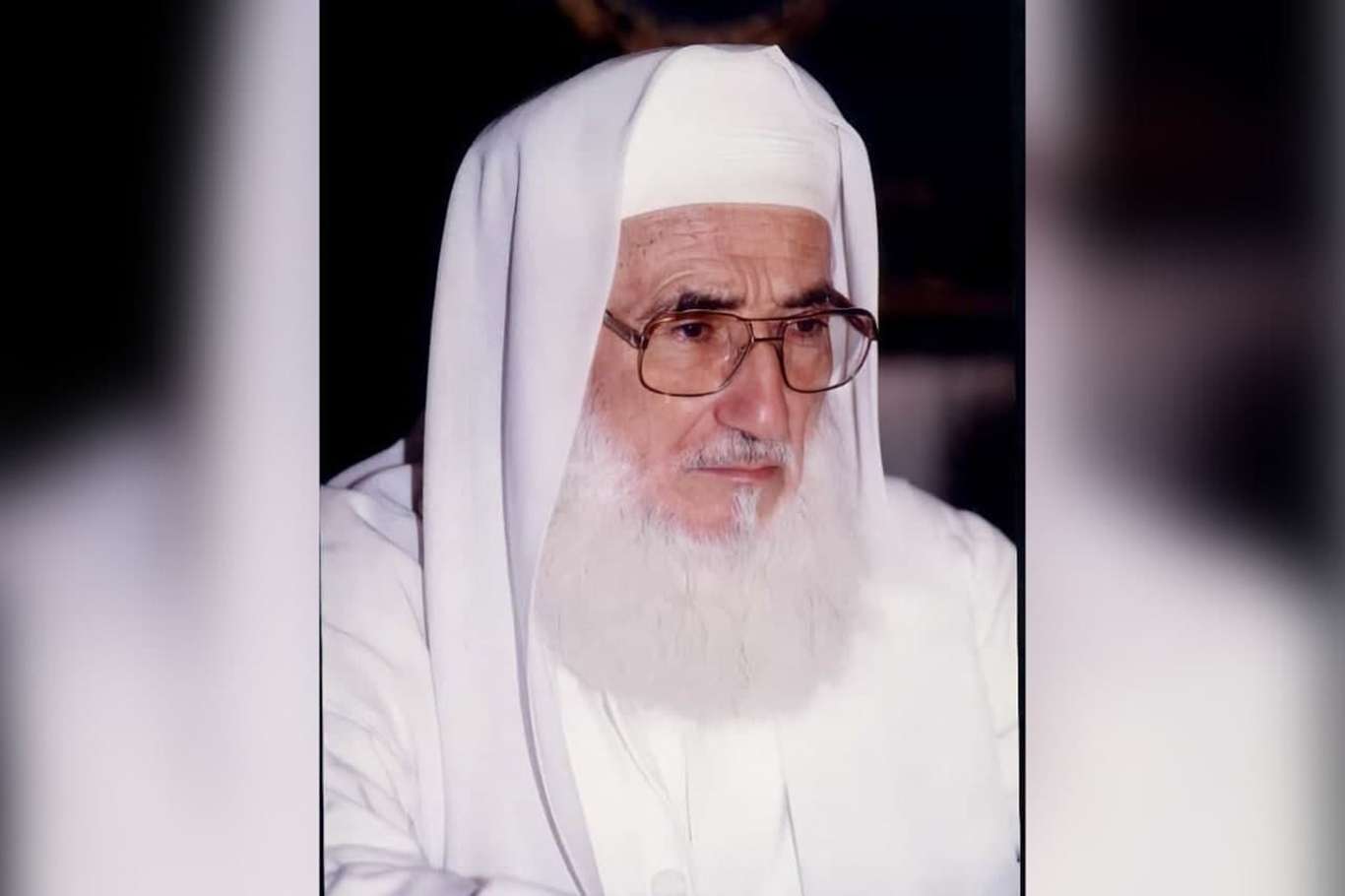One of prominent Islamic Scholars, Al-Sabuni, dies at age of 91


Shaykh Muhammad Ali al-Sabuni, one of the influential Islamic scholars because of his easy-to-read, simplified commentaries of the Holy Qur’an, has died at age of 91 in Turkey’s northwestern Yalova province.
Shaykh Muhammad Ali al-Sabuni was born in the city of Aleppo in Syria in 1930. His father was one of the senior scholars of Aleppo.
He received much of his initial and formal education in Arabic, inheritance, and sciences of religion from his father, Shaykh Jamīl. He memorized the Qur’ān in primary schools and completed his higher secondary school while still young. Shaykh al-Sabuni studied under some of the leading scholars of the city.
Some of his most prominent teachers were Shaykh Muhammad Najīb Sirājuddīn, Shaykh Ahmad al-Shamā, Shaykh Muhammad Sa‘īd al-Idlibī, Shaykh Muhammad Rāghib al-Tabbākh, and Shaykh Muhammad Najīb Khayātah.
In addition, he attended other lessons with other ‘Ulemā in various mosques. He continued his formal education in government schools. After obtaining his primary school certificate he enrolled at the Madrassa al-Tijariyya where he studied for one year. He was disinclined because they were teaching the students about interest-based transactions. Even though he obtained the best results he left and instead he joined the famous Khasrawiyya school of Sharī‘ah in Aleppo. Here he combined Islamic Studies and studies in the secular subjects. He graduated in 1949. He graduated with excellent results and the Ministry of Awqāf (Endowments) sent him to further his studies at the famous al-Azhar University in Egypt. He graduated from the Faculty of Sharī‘ah in 1952 and he completed his specialization course in 1954.
After completing his studies, he returned to Aleppo where he taught Islamic education in various secondary schools in the city. He taught for about eight years from 1955 to 1962.
He was appointed as a lecturer at the Faculty of Sharī‘ah at the Umm al-Qurā’ University and at the Faculty of Education of the King ‘Abdul Azīz University both in Mecca, where he taught for about 28 years. Many prominent scholars graduated under his guidance. Due to his academic work and his writing, the University assigned some additional tasks to him. These included editing some classical for the Centre for Academic Research and Reviving the Islamic Heritage.
He edited Ma‘ani al-Qur’ān by Imām Abū Jā‘far al-Nahhās (d. 338). This book was published in 6 volumes. Thereafter he worked as an advisor with the Muslim World League in the Council for Scientific Research in the Qur’ān and the Sunnah. He remained there for a few years after which he devoted himself entirely to writing and to research.
Shaykh al-Sabuni authored numerous books which were received all over the world and many were even translated into other languages. He even conducted some lessons in the Karām of Mecca. He also conducted a weekly lesson in one of the mosques of Jeddah in Tafsīr. This lesson continued for about eight years during which he completed about two-thirds of the Qur’ān’. These lessons were recorded on audio 3 cassettes. He also recorded about 600 programs for television broadcasts.He completed this in 1998.
Some of the books he wrote are Safwat al-Tafāsīr, Rawā’i al-Bayān fī Tafsīr Āyāt al-Ahkām, Qabas min Nūr al-Qur’ān al-Karīm, Al-Tafsīr al-WāMi al-Muyassar, Kashf al-Iftira’āt fī Risālat al-Tanbihāt Kawla afwat al-Tafāsīr, and Al-Tabsīr bi-mā fī Rasā’il Bakr Abū Zayd min al-Tazwīr. (ILKHA)
In 2007, the Organizing Committee for the Dubai International Qur’ān Award chose Shaykh Muhammad‘Alī al- ābūnī as the personality of the Muslim World for his contribution to Islam. He was selected from a large list of other nominees and was approved by Prince Muhammad ibn Rāshid Āl-Maktūm, Deputy of the Head of State of Dubai. Over a period of eleven years, many renowned scholars were honored in this way. One of them includes, for example, Shaykh YūRuf al-QaraMāwī. (ILKHA)
LEGAL WARNING: All rights of the published news, photos and videos are reserved by İlke Haber Ajansı Basın Yayın San. Trade A.Ş. Under no circumstances can all or part of the news, photos and videos be used without a written contract or subscription.
The European Union is grappling with an unprecedented escalation in drug trafficking, with officials estimating that over 100 tons of cocaine enter the continent each year—a figure that European security agencies admit may represent only a fraction of the true scale.
On November 2, 1917, British Foreign Secretary Arthur James Balfour sent a short letter to Zionist leader Lord Rothschild, pledging Britain’s support for a Jewish homeland in Palestine.
One year has passed since Yahya Sinwar, the legendary leader of Hamas in the Gaza Strip, was martyred in a direct confrontation with Israeli forces in Rafah.
Two years have passed since the morning that forever altered the course of the Palestinian struggle — the dawn of October 7, 2023, when the besieged enclave of Gaza broke through its prison walls in a thunderous uprising now etched into history as Operation Al-Aqsa Flood.